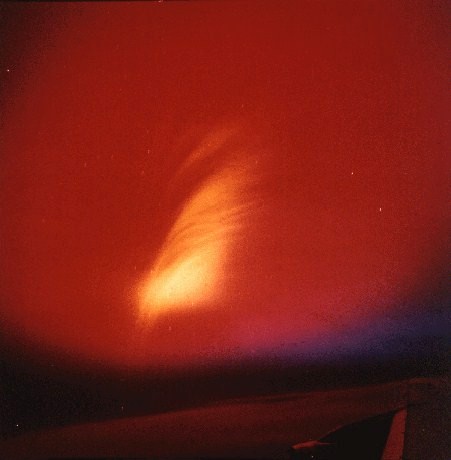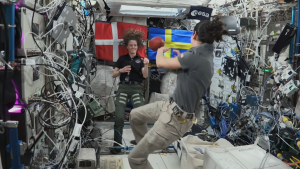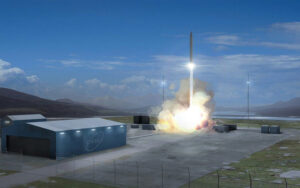Opinion: Turner and the Same Old New Russian Nuke Threat In Space
15th Feb 2024
At Orbital Today, we say that opinions are like exhaust nozzles; every rocket’s got one. Instead of warming the air with our opinions, we show what others are thinking and trying to change. One example is gender equality in the space industry. The need for an education overhaul to prepare for a space industry workforce (or not: see our interview with Josh Western at Space Forge) is another.
However, as the editor at Orbital Today, I can see that the interconnect between the space-related industry, astro/geo-politics, and the military needs comment at this time. The chairman of the U.S. House Intelligence Committee, Representative Mike Turner, has raised the hue and cry about a ‘foreign security threat’ against America. Media worldwide are claiming that this is related to a space-borne system from Russia. What’s going on? Let’s find out.
What we know thus far
On 13th February, Representative Turner sent a note to the elected members of the House of Representatives explaining that his committee had voted to release to them information regarding “an urgent matter with regard to a destabilizing foreign military capability that should be known by all Congressional Policy Makers”, The Hill reports. The congresspeople were given compartmentalized access to the classified information made available by the committee.
On 14th February, Turner called on President Joe Biden to declassify the information made available to the congresspeople and make it available to the American people. However, no information was given about the nature of the threat.
Russian nuclear weapon in space – maybe
On 14th February, ABC News published a scoop: “GOP warning of ‘national security threat’ is about Russia wanting nuclear weapon in space: Sources“. ABC News claims that the threat is a space-borne anti-satellite system. At the moment, it is not clear whether the weapons platform in space is supposed to carry nuclear weapons or be nuclear powered or both. Regardless, the system is not designed for ground attacks, but would target the U.S. military infrastructure in space, especially the elements of it related to the command and control infrastructure around the U.S. nuclear arsenal. Disrupting this infrastructure will hamper, if not outright cripple, the U.S. nuclear deterrent. Used more broadly, it could eliminate whole swaths of the satellite constellations upon which we rely.
Why now!
The reactions of political figures in Washington and elsewhere are important, but they can be read elsewhere. The important question at this moment is precisely that: why this moment for Turner’s alarm?
The answer, it seems, has nothing to do with the space industry immediately. It has everything to do with the recent interview of Russian president Putin by the American journalist Tucker Carlson as well as an invite by the current frontrunner for being the Republican Party’s candidate for President of the United States, former president Trump, for Russia to “do whatever it wants” in Europe. This was an offer later claimed by others to have been in jest, or as a wake-up call for Europe to engage in greater arms expenditures. The content of the interview shows that the Kremlin is more likely to take this joke as an invitation to “do whatever it wants”.
Moreover, the U.S. House of Representatives is preparing to vote on issues directly related to Russia – namely funding for supplying the arms that Ukraine needs to defend itself. This vote is unlikely to succeed at the moment, not least because of Trump’s publicly known personal animosity toward Ukrainian president Zelenskyy and the sizeable number of Republican representatives who consider Trump to be their leader. Representative Turner, who was in Kyiv over the weekend before the announcement, has been a staunch supporter of American efforts to help Ukraine defend itself.
Why space?
The Russian anti-satellite program could be progressing, and if the U.S. does not take action now, it’s satellite capability, both commercial and military, would be at great risk. However, variations of such plans have been in file cabinets since the 1950s. It’s not a reason to push now.
We hold that Turner saw the clear and present danger of not responding to the Putin interview and Trump comments before the House vote and then the vote failing. This course of events would have emboldened the Kremlin to the point of no return on the ground and in space – and by this we mean the Kremlin writ broadly as the people who constitute the general Russian power structure, and not just Putin and his closest advisors.
Thus the anti-satellite project, in itself a vital issue, has become useful as something that everyone can understand without feeling personally and immediately threatened about. Humans have been projecting their hopes and fears onto the heavens for millennia. We think that Representative Turner has done just that in order to wake up portions of the American electorate that otherwise would have been overly focused on issues repeatedly blown out of proportion in concerted Russian efforts going back to the foundation of its Cheka, honed by the KGB, and weaponized by the FSB in the Internet age.
Fallout for the space industry
Representative Turner’s ringing of the alarm, if it is not about such a project, should be taken as a warning by the space industry anyway. Russia is not the only state actor interested in anti-satellite projects that threaten everyone’s satellites. The industry needs to step up for its own sake – military needs aside – and consider ways to prevent or circumvent an attack. And as that unfolds, we at Orbital Today will be showing what others are thinking and trying to change.






Thank you for your comment! It will be visible on the site after moderation.